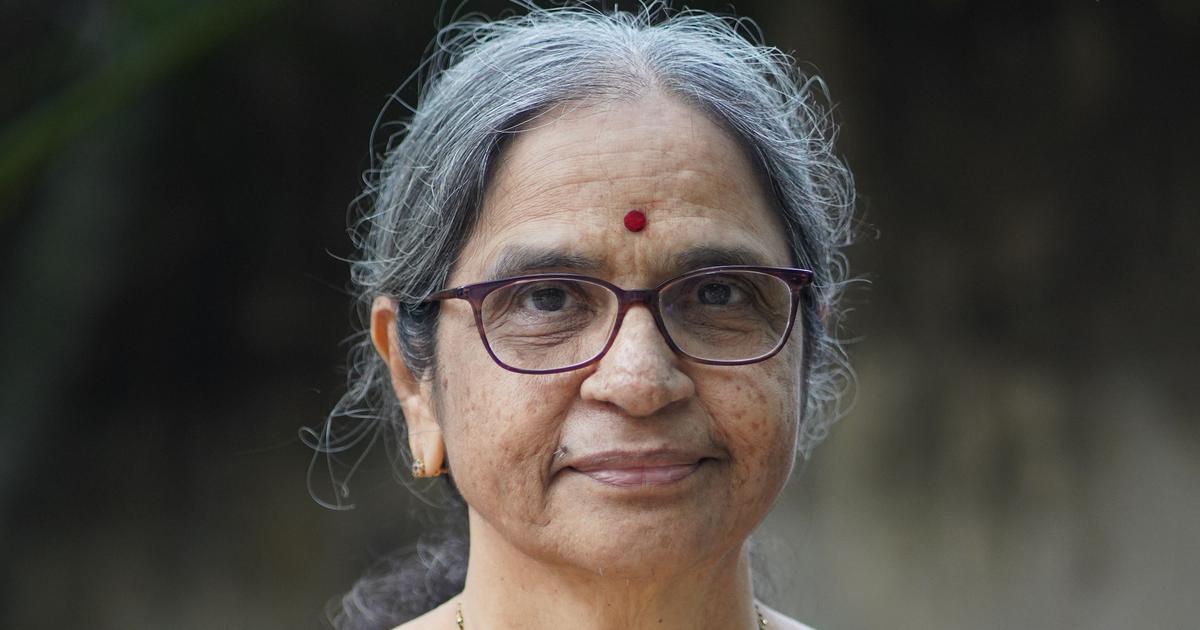Sabari was not born in this forest, but she was here since childhood. How long ago did she arrive here? Neither she, nor the forest, nor Pampa – none could remember. If Maharshi Matanga had been alive, he might have revealed the answer as he was the oldest in the region. It was he who introduced Sabari to this forest. Soon, his ashram became her home. Under his guidance, she became acquainted with every tree and flower, snake and anthill, bird and worm, the home of every creature in the forest. She discovered ways to make her way to the waterfalls cascading down the hills, learned to embrace them.
Sabari had spent much of her life in Matanga Muni’s ashram, learning countless forms of knowledge from him. She spent her days serving the ascetic. She tended to him in his final days, as his vision faded and his body grew frail. Following his demise, which was many years ago, there was no one left in the ashram but Sabari.
A number of forest dwellers, or aranyavasis, who held the muni in high regard, travelled long distances for a divine sight of him. Sabari ensured that their stay was comfortable. The visitors and residents of the ashram bonded over long conversations. Those from distant lands would bring news and updates from their regions. Matanga Muni would then explain the underlying, unstated meanings of these fresh developments, providing the listeners with new insights that could otherwise have eluded them. After expressing gratitude for the perspectives they gained, the visitors would bow to him and leave.
Maharshi Matanga had come to the forest at the peak of his youth, enraged and agitated. He had arrived carrying the weight of many a mortifying abasement. He was the very image of helplessness. In due course of time, he transformed himself into a brilliant beam of light that enhanced the beauty of this already exquisite forest. He often regaled Sabari, the occupants of the ashram and the aranyavasis, with the story of his transformation. Every time the ashram had a new visitor, he would narrate the story without a sign of boredom, completely immersed in the telling. Sabari listened to every iteration with unwavering devotion. Once the muni left the mortal world, the responsibility of recounting his story fell on Sabari. After all, it was her story too.
The forest’s inhabitants, whether humans or beasts, greatly admired and revered Sabari. They were eager to assist her in any way they could. But she would gently refuse their help. “I’ll gladly rely on you when I’m drained of all energy. For now, let me do what I do on my own,” she would say. All who wished to lend a hand would step back and leave the ashram, not wanting to disobey her. But not Kabanda. After Matanga Muni’s passing, Kabanda never explicitly stated that he would be the ashram’s new caretaker, but he did everything necessary to keep things going. Sabari could not deny his assistance either because she was aware of his respect for her. Theirs was a strange bond.
Kabanda used to visit the ashram occasionally when Matanga Muni was alive. He was fond of wandering off to faraway forests. Every six months he would return to the ashram and share with Matanga Muni and Sabari all that he had seen and experienced. Three or four months would pass and he would again bid farewell to the wise elders and leave for his next expedition.
Kabanda, who could never stay in one place for long, not once left the vicinity of the ashram now. And even if he did, he would be gone only for an hour or two. Sabari had tried her best to dissuade him from this newfound habit of staying put in the ashram, but eventually, she let him be. In time, she got used to Kabanda’s presence.
They reminisced about their conversations with Matanga Muni and, together, admired the splendour of the forest.
This morning, when Sabari returned to the ashram after fetching water from the river, she found Kabanda waiting there with a guest. It was common for the ashram to have visitors. Travellers passing through the forest chose the ashram as a retreat to rest awhile in. This was the first halt for travellers from the north, and they had to walk many miles more to reach another inhabited place. Sabari’s abode thus welcomed unexpected guests from time to time. After enjoying the hospitality at the ashram, they would resume their journeys.
Sabari took notice of her new guest. The sweat on his body indicated that he had arrived not too long ago. He had perhaps washed his dust-covered feet at the ashram’s entrance – they were still damp.
The guest was holding a tumbler of water that Kabanda must have offered him; it was still half full. Sabari placed the pot she had been carrying on the ground and adorned the surroundings with the flowers she had collected from the river. Numerous fruit-bearing trees, each laden with abundance, wreathed the ashram. Sabari plucked some fruits, offered them to the guest on a leaf plate and sat before him. The moment she did, all the birds, squirrels and rabbits gathered around her. A rabbit hopped on to her lap and proudly looked around at the other beings, as though revelling in his accomplishment. The others attempted to leap on to Sabari’s lap for the coveted seat, but Kabanda sprang to ward off the creatures swiftly in an attempt to shield Sabari.
All the animals stopped in their tracks, almost as if they had realised their mistake. Kabanda took the rabbit from Sabari’s hand and said, “Don’t you know you must put on your best behaviour when guests are here? Now, go and play elsewhere.”
The wildlings ambled away.
The guest watched these interactions in wonder. Sabari said to him, “You must be hungry. You look fatigued. Please have these fruits.”
The man ate all that had been offered to him and thanked Sabari, joining his palms in a namaskaram, his face radiant. Sabari leaned closer to him and asked, “Where are you coming from?” The guest’s features and complexion had piqued her curiosity, for they did not match those of the people from the south. Clearly, he was not from the region, and she knew that only people from far-off places brought exciting news. “I come from the north, Amma. My name is Sutapa. I hail from the city of Ayodhya.” Sabari’s face grew troubled, but only for a brief moment.
“I’m surprised to hear you’ve been travelling alone all the way from the city to the remote shores of the Pampa, deep within the forest. These days, aranyavasis seem to be more inclined to travel to the ever-expanding cities, sprouting across our region too. What made you turn away from all that and lose yourself in these woods?”
Sutapa sighed deeply and said, “Now, that’s a long story. Our king was Maharaja Dasharatha. We hoped he’d follow tradition and abdicate the throne in his old age, passing it on to his eldest son, Ramachandra. Who knows what transpired in the queens’ chambers, but the king ordered that Ramachandra be exiled to the forests and, his third queen’s son, Bharata, be crowned as the king instead. Without putting up a fight for his rights, Ramachandra left for the forest with his wife Sita and brother Lakshmana.
“When word of our beloved prince’s exile reached us, the Ayodhyavasis, we lost all hope and were no longer interested to continue living in the city. We, too, wanted to follow Ramachandra into the forests. Many of us started our expeditions under these circumstances. But once he realised our intent, Ramachandra forbade us to follow him. While several complied with his wishes and returned to the city, some of us broke away from the group and took another path into the forest. Many months and many miles later, some decided to return home. Those of us who wanted to continue scattered in different directions.
“A few travellers stopped at places that caught their attention. I’m driven by the desire to visit the sea, and my journey will end only when I reach there. I pause occasionally when fatigue gets the better of me. This forest, nestled along the banks of the Pampa, is so serene that I couldn’t walk past it. I’ve never encountered anything like it. My hope is to halt here for four days before continuing on my way. I’m blessed to find myself at the same ashram where Matanga Muni once lived.”

Excerpted with permission from On the Banks of the Pampa, Volga, translated from the Telugu by Purnima Tammireddy, HarperCollins India.










